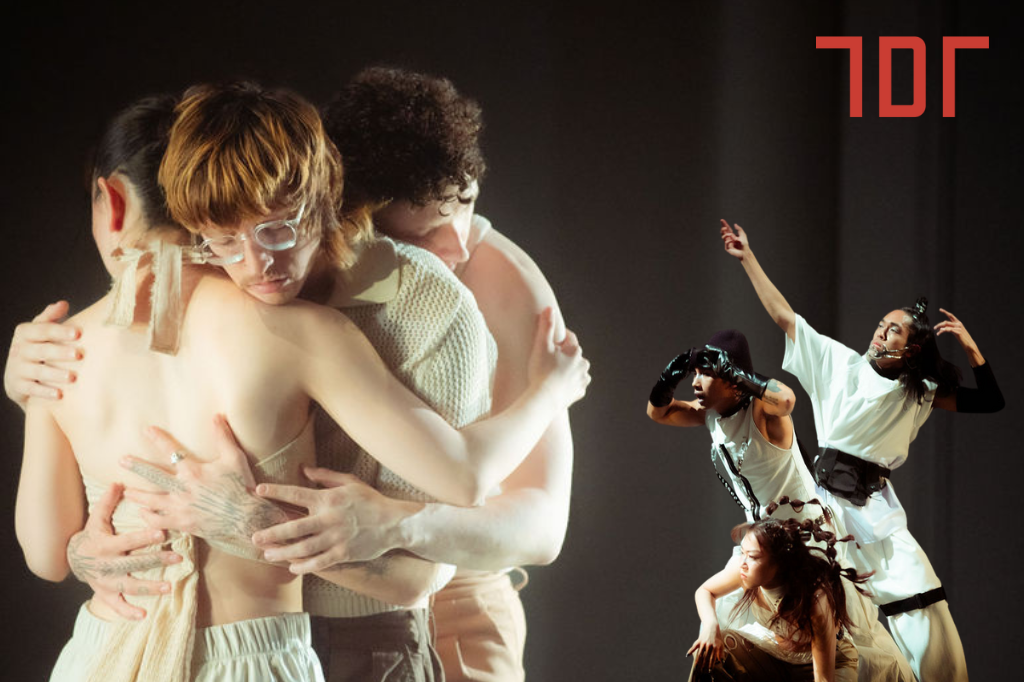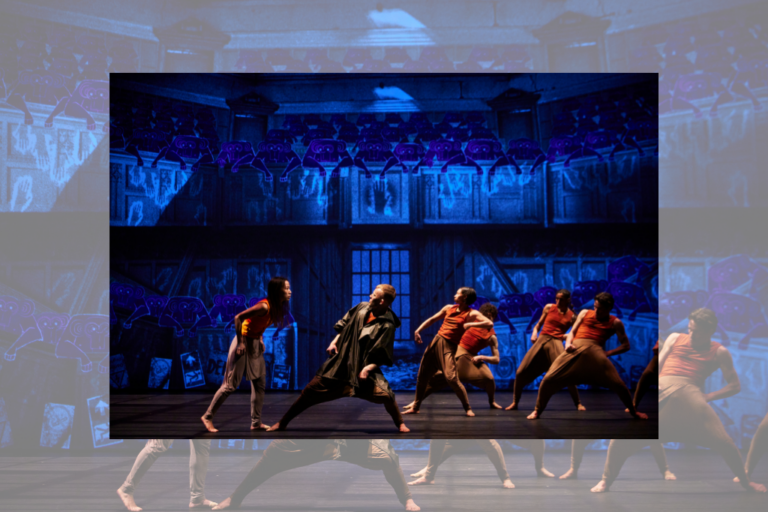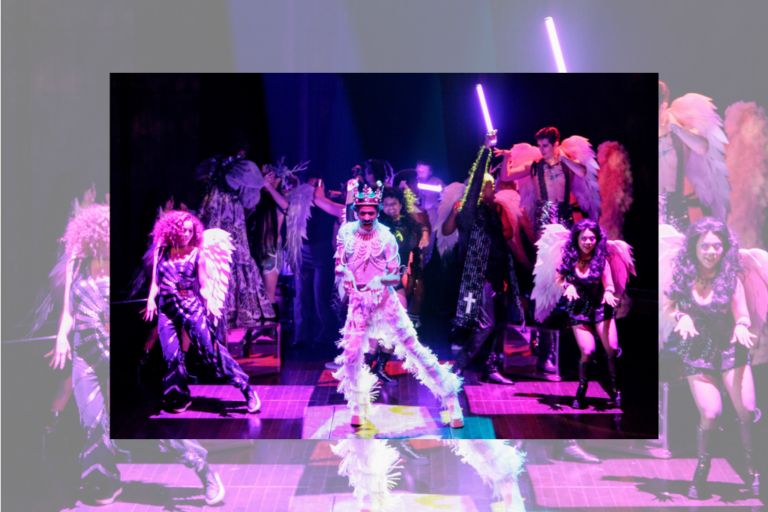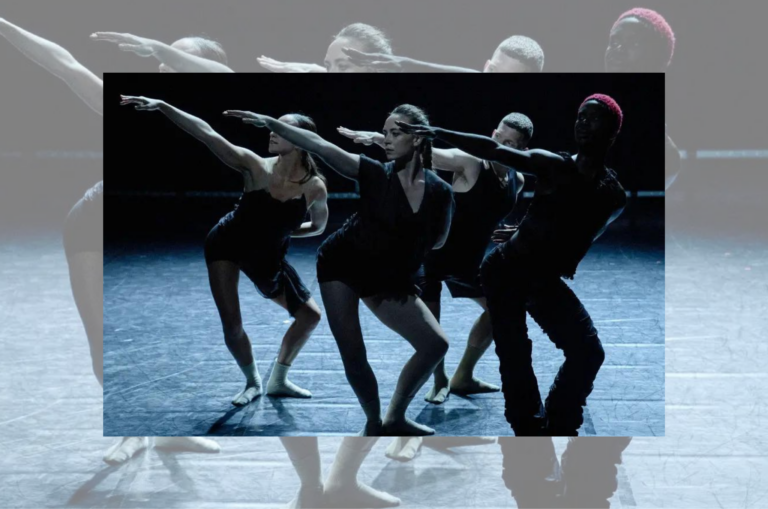With its Spring Double Bill, Toronto Dance Theatre centres community and new voices
If you’re a regular patron of the arts in Toronto, you might have found a company, collective, or venue that always seems to get things right.
For me, that group is Toronto Dance Theatre (TDT). TDT is by no means a secret: founded in 1968, it’s one of Canada’s oldest continually operating dance companies. Yet since resuming performances post-pandemic, their seasons have consistently pushed boundaries. I’ve had the pleasure of reviewing them all; I think my favourite continues to be Rodney Diverlus’ welcome, we’ve been waiting. But across their recent work, TDT has facilitated innovative spaces and styles that shift away from Western dance’s heteronormative, Eurocentric tropes.
TDT is performing its Spring Double Bill at the Winchester Street Theatre until April 13th, with tickets available on a pay-what-you-can scale from $10 – $45. It features “KIOKU NO MA – 記憶の間” by longtime company member Yuichiro Inoue, and “ALIENS” by street dance duo KINAJ (Kin Nguien and AJ Velasco). I sat down with KINAJ, Inoue, and artistic director Andrew Tay to talk about the inspirations and backstories behind their latest dance offerings.
Since taking the helm at TDT in 2020, Tay has seen the company through many post-pandemic transitions. Just this past weekend, TDT hosted its first audition for new dancers in eight years, with Tay excited to see “a whole generation of artists who graduated training during the pandemic, and haven’t really had a chance to be seen that much yet.” And, with the goal of putting “Toronto artists in conversation with other dance communities,” the company will begin touring outside the city in the coming years.
But for the Spring Double Bill, Tay is considering how programming can be a means of supporting emerging artists. “Since I arrived, I’ve made it a point to mostly program artists who haven’t had the opportunity to produce works at this scale yet, and then really support them through the process,” he explained, maintaining a big grin as he shared his enthusiasm for the three choreographers’ debuts.
One of those artists, Inoue, is premiering his first full-length ensemble work as choreographer for the Spring Double Bill. “KIOKU NO MA – 記憶の間” represents the capstone of his 18th and final year as a TDT company member — he’s retiring after this season.
Inoue has lived what can only be described as a lifetime of dance, having performed with various companies in Germany before moving to Canada. Born and raised in Japan, he was introduced to dance under very relatable circumstances: “My younger sister started to do ballet. So then one day my parents said, ‘why don’t you go to ballet, too?’ For them, it’s easier if the kids go to one place!,” he said with a laugh. “And I loved moving around. I mean with ballet, there’s strict methods and rules, but everybody approaches them in a different way. I love that language; people figuring out how to express themselves.”
Those personal sentiments and classical expertise are on display in Inoue’s work, inspired by the Japanese aesthetic principle of ma (間). “It’s the idea of finding beauty and meaning in the interval; poses; emptiness,” explained Inoue. “It’s watching the sun set, or a flower floating down as you walk down the street.” And finding ma (間) with colleagues Peter Kelly, Megumi Kokuba, and Roberto Soria meant discovering the memories stored between them. “I’ve known them for a long time, and we all feel comfortable trying to figure it out,” said Inoue.
“There’s really something to be said about watching folks work together who have this built-in connection and foundational groundwork,” added Tay.
Fostering such relationships is important to the environment Tay wishes to create at TDT. “One of the things I like to think about as an artistic director is how the structure of a dance company can contribute to the local dance ecology,” Tay explained. “When I started to talk to KINAJ, they really wanted to work with folks who they developed friendships with through their dance community. So to be able to share the stage with those folks over this period has been really incredible and rewarding.”
Indeed, KINAJ’s contribution to the Spring Double Bill, “ALIENS,” is performed entirely by dancers outside of TDT’s core ensemble. Alongside a matrix of tower lights, their blend of street dance and contemporary styles notably contrast Inoue’s explanation of stillness and memory recall. Their world is instead one of after-hours practices, house music, and cyphers, where dancers form a circle and take turns freestyling in the middle.
For KINAJ, TDT’s focus on community care and mentorship has proven transformative. “ALIENS” serves as a metaphor for the ensemble’s experiences as first- and second-generation Asian immigrants. Nguien emphasizes that the duo’s dance journey started as just a hobby.
“We didn’t really go into dance as a career choice professionally because in my family upbringing, dance is not really a profession,” she said. “And prior to working with TDT, we didn’t really know that it was possible to work on productions like these.”
But after participating in TDT’s pilot program for emerging artists, Tay offered KINAJ the opportunity to choreograph for the company’s mainstage season. This included company contracts for their collaborators, allowing everyone to participate in TDT’s classes, rehearsals, and culture. Velasco acknowledges the impact that this experience with TDT had on their dancers: “I quote them. They say it was life-changing for them to be part of this process, and to work as professional dancers. It wasn’t something they thought they could do or pursue.”
This positive experience has inspired both KINAJ and Inoue to continue pursuing future choreographic endeavours. Speaking directly to Inoue and KINAJ at the end of our conversation, Tay offered some final words of encouragement: “I really hope that, through whatever visibility you get from folks seeing your work, that you’re able to get more opportunities to continue your work and your practice.”
TDT’s Spring Double Bill runs at the Winchester Street Theatre until April 13. Tickets are available here.














Comments